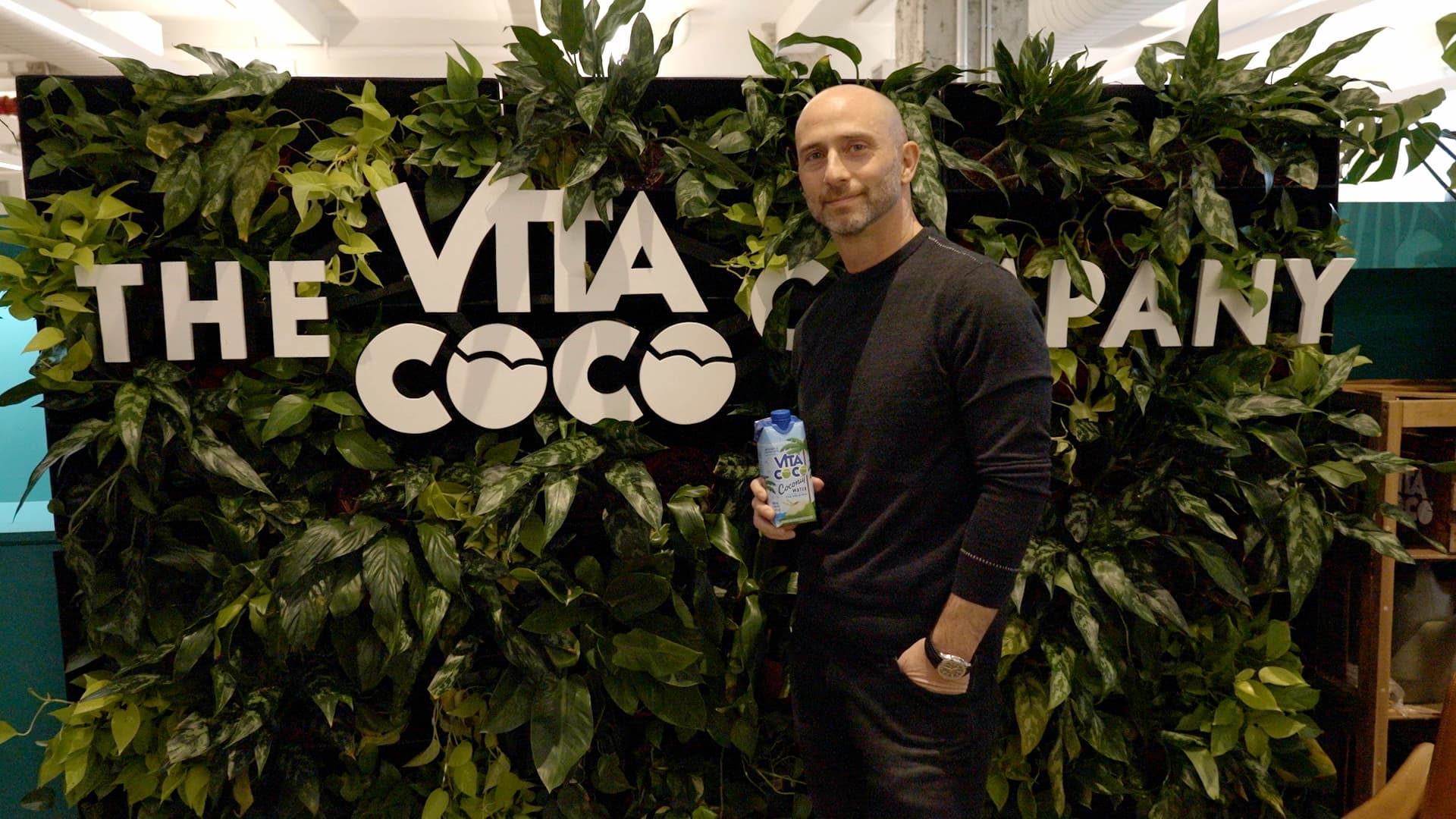Liran eventually fell in love with one of these women and moved to Brazil. When Kirban visited, he realized how popular coconut water—which has a salty-sweet taste and high levels of hydrating electrolytes—is in the Southern Hemisphere, especially compared to the United States
The two friends decided to take advantage of what they thought was a once-in-a-lifetime opportunity.
“People in Brazil drank it for everything,” Kirban, 48, tells CNBC Make It. “They drank it at the breakfast table. They drank it on the beach. They drank it after training… We say, 'There must be a consumer in the United States'”
Liran and Kirban contracted with a supplier in Brazil to produce their first shipment for $75,000. They paid largely with Kirban's money, which he received from starting and running a real estate software company after dropping out of college. That software business still exists, and Kirban still helps run it on the side, he says.
The shipment was stopped at the border by US officials. The co-founders didn't realize they had to register it with the U.S. Food and Drug Administration, which meant they had to redirect it to the Bahamas, where Kirban says it sells it “door-to-door” in bars, grocery stores, and more “People’s homes” were even sold to other stores.
It was just the beginning of Vita Coco's long road to financial success, with more stumbling blocks along the way.
In the Bahamas, the friends got “most” of their money back and repeated the process with the appropriate government registrations, Kirban says. When Vita Coco became available in the US, they discovered an almost identical coconut water brand called Zico that came out around the same time.
The two companies competed for shelf space in stores across New York in the 2000s. The protracted battle was marked by dirty tactics on both sides, from bombastic marketing and price undercutting to salespeople removing their competitors' products from shelves.
At the time, Kirban was desperate to avoid taking on too much debt while funding Vita Coco's early growth, so he developed a credit card strategy not for the faint of heart.
“We started maxing out credit cards… [to] “I wouldn’t do the business anymore,” he says, adding, “I would get a new credit card with no interest for 90 days.” [or] six months and simply transfer everything to the new credit card. I did that several times.
This tactic helped Vita Coco avoid business loans that required immediate repayment with interest and allowed the co-founders to delay seeking outside investment. That gave them more control over the company and helped them retain more shares in the long term, Kirban says.
“We never paid interest and didn’t have to start paying off the credit card until, I don’t know, a year or a year and a half into the business,” he says.
Kirban's strategy was incredibly risky, both personally and professionally. Even if you end up paying off every card you open, you can do significant damage to your credit score, especially if you use up multiple cards, experts say.
Eventually, Vita Coco took on outside investors – starting in 2007, when Belgian investment company Verlinvest invested an undisclosed amount. When Zico sold a 20 percent stake in beverage giant Coca-Cola two years later, Kirban found a group of prominent investors led by Madonna and signed a distribution deal with Keurig Dr. in 2010. Pepper, which still allowed the co-founders to retain a controlling interest.
Vita Coco now controls about half of the U.S. coconut water market. Zico's founder later expressed regret over selling the rest of the company to Coca-Cola in 2013 and bought it back in 2021.
Last year, Vita Coco cracked more than a billion coconuts for the first time to make its signature product – a rate of about 3 million a day. Kirban hopes to continue to grow its brand across North America and soon expand into Europe and Asia.
“We see a great opportunity to continue to expand globally,” he says.
Do you want to get your dream job in 2024? Take CNBC's new online course, How to Ace Your Job Interview. Learn what hiring managers are really looking for, body language techniques, what to say and what not to say, and the best way to talk about pay. Get started today and save 50% with discount code EARLYBIRD.


